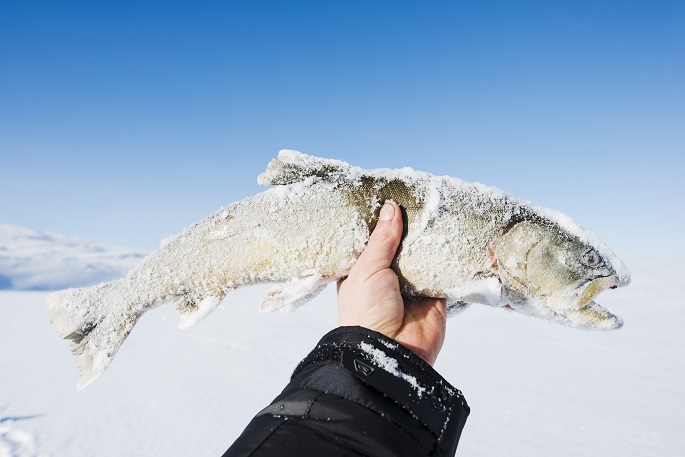Rewilding fish necessary to enhance stock survival: Luke
Published : 29 Dec 2017, 22:38
Updated : 29 Dec 2017, 23:40
Fish reared in fish farms are no longer surviving well enough when released into the nature because in a simple rearing tank environment the genome of the fish has degenerated during several generations of captivity, according to Natural Resources Institute Finland –Luke.
In a project coordinated by Luke, domesticated fish stocks reared in farms are rewilded by crossbreeding genes from wild fish populations.
Successfully, the salmon populations in the Tornionjoki and Simojoki rivers have recovered during the last few decades through effective fishing regulations and intensive fish releases and are now providing good catches for fishermen based on natural reproduction.
Instead, natural reproduction of the other stocks of Baltic salmon and trout is weak or non-existent in our rivers. It is apparent that the viability and survival of stocked salmon and trout in the nature has significantly deteriorated.
"A farm environment favours different kinds of individuals than a natural environment. If it has not been possible to renew a hatchery brood stock of fish from the nature, the selection processes in fish farm conditions and breeding during several generations of captivity have weakened the viability of the fish produced to be released into natural waters, most probably due to inbreeding among the brood stocks”, said senior scientist Pekka Hyvärinen from the Natural Resources Institute Finland (Luke).
In addition to genetic problems, an issue with intensive production of released fish is the fact that the simple rearing environment does not prepare the released fish for the challenges they face in the nature, such as surviving the attacks by predatory fish or using live natural food.
New methods are needed for domesticated fish stocks to genetically rewild them and to enrich the standard rearing methods.
Hyvärinen is responsible for the coordination of the project called Luonnossa menestyvät istukkaat (Successful fish releases) running under Environmental program of fishery research that was started in the last spring. The project funded by the European Maritime and Fisheries Fund aims, as its name suggests, at developing methods for successful performance of reared fish.
The bare necessities of hatchery reared fish for life in the nature are strengthened through genetics and improved rearing and stocking methods.
"The aim is to bring the most recent research results and new, cost-effective methods into practical business operations, and to improve the overall sustainability of stocking and farming operations”, said Hyvärinen.
Methods are being tested in practical farming experiments at the Kainuu fisheries research station of Luke located in Paltamo and at private fish farms, as well as with stocking experiments in the nature.
"We have already received very encouraging results with stocking fish reared using the so-called enriched rearing method. Survival of the fish reared in an enriched environment has been greater compared with fish reared under present standard methods", Hyvärinen says.
It was also found out that rearing in an enriched environment reduces the harmful effects of fish diseases during rearing.
Luke has started research efforts in cooperation with university scientists to study methods to genetically transform the domesticated fish into more wild-like fish. The aim of the studies is to find out whether it is e.g. possible to use fish stocks from nearby rivers which have preserved the characteristics of wild populations to rewild domesticated fish stocks towards the wild ones by crossbreeding these fish between themselves.
"A crucial factor for implementing the crossbreeding methods is whether the viability of the farmed fish can really be improved or whether they produce some negative effects on the performance of offspring”, Pekka Hyvärinen said.
In the future, the project will also develop new less stressful transport and release methods for the fish.
The project coordinated by Luke is conducted in cooperation with the University of Eastern Finland, the University of Jyväskylä, the University of Helsinki and the University of Oulu, Evira and Metsähallitus, as well as private fish farming companies.


